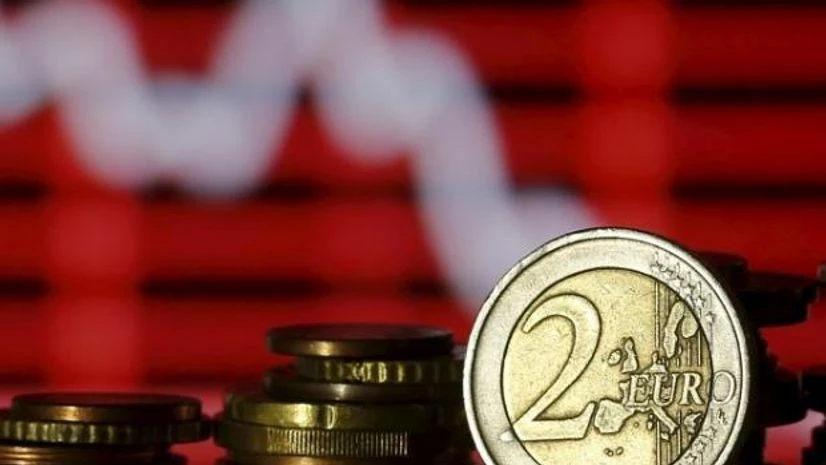One of the great claims made for the euro was that it would rival the US dollar as a second global reserve currency. These hopes have failed to materialise. The euro’s importance in global reserves and financial markets today is about the same as it was two decades ago, when the euro replaced the Deutsche Mark and 10 other national currencies.
But hope dies last, and in this spirit the European Commission recently published a Communication entitled "Towards a stronger international role of the euro" (sic). The European Commission, like most European policymakers, takes it as given that the eurozone would benefit if the euro played a more global role. But that is not necessarily true.
One such benefit supposedly derives from the widespread use of euro banknotes outside the single-currency area. On this measure at least, the euro has been a big success. Currency in circulation has more than doubled over the last 20 years, both in absolute terms and as a percentage of eurozone GDP, and the total value of euro banknotes in circulation amounts now to Euro 1.2 trillion ($1.3 billion). Furthermore, it is commonly estimated that a large fraction of euro cash is used outside the eurozone.
But the economics of banknote issuance have changed. Issuance was previously a profitable business for central banks, because they could invest the proceeds in government bonds with a decent yield. With interest rates at 5 per cent, and Euro 1.2 trillion of notes in circulation, the European Central Bank could have generated revenue of about Euro 60 billion a year. Though small compared to the eurozone’s overall GDP of Euro 10 trillion, this sum is equivalent to almost one-half of the EU’s budget.
At today’s negative interest rates, however, currency issuance is no longer profitable. This might be another reason why the ECB decided to stop issuing the Euro 500 note, which is also much more convenient than the $100 bill for handling large amounts of black money. Providing a handy vehicle for underground transactions abroad should not be regarded as an advantage of the euro.
Also Read
Another argument for having a global reserve currency is that foreign borrowing becomes cheaper. This is the “exorbitant privilege” that Valéry Giscard d'Estaing, when he was France’s finance minister, famously said the United States enjoyed owing to the dollar’s status as the world’s main reserve currency. But while issuing dollar-denominated debt is an important advantage for the US (the world’s largest debtor), the eurozone is a net creditor. And with real interest rates tending to be higher in dollar terms, it would be better for the eurozone’s external assets to be denominated in dollars than in euro.
Furthermore, the consequences of being a major anchor currency would be particularly problematic for the euro. Fortunately, the countries that peg their currency to the euro have little economic weight. Imagine, for example, that China pegged its currency to the euro instead of to the dollar. The Chinese authorities would then determine the euro’s exchange rate against the dollar — the currency of the EU’s biggest trading partner and competitor. Being an anchor currency can actually entail a loss of control.
True, there are other reasons why it might be in Europe’s interest for the euro to play a larger global role. For example, the extra-territorial application of sanctions by the US makes it extremely difficult for European companies to maintain trade ties with Iran, because most of Iran’s international trade is invoiced and settled in dollars. But the ability of the US to apply sanctions so widely is essentially due to its diplomatic and military power. Even if the euro played a much larger role in global finance, the US would remain dominant in terms of hard power.
Having a global reserve currency makes sense for a large economy that is not too exposed to the rest of the world. The US fits the bill. It makes less sense for the somewhat smaller eurozone economy, where trade in goods and services accounts for more than one-quarter of overall GDP. Moreover, the eurozone’s share of the global economy has declined from about 25 per cent when the euro was born to 15 per cent today, and will soon fall below 10 per cent.
The relative weight of the US economy will of course also decrease as China and India continue to grow faster. But the dollar will retain its conventional role as the key currency for international trade transactions as long as China limits capital movements to keep control over its domestic economy. The euro, on the other hand, could increase its global role only by slowing the relative decline of the eurozone economy through rapid growth.
But, even assuming that the eurozone’s relative decline continues, this would not necessarily mean a fall in living standards. The share of Japan’s economy in global GDP has halved over the last 20 years, while living standards there have continued to improve, albeit slowly.
Either way, it is a good thing that early hopes for the euro to become a true global currency have not been realised. The eurozone currently is facing enough economic challenges without the additional burden of issuing a global reserve currency.
The writer is director of the Center for European Policy Studies. ©2019 Project Syndicate.
Disclaimer: These are personal views of the writer. They do not necessarily reflect the opinion of www.business-standard.com or the Business Standard newspaper

)
